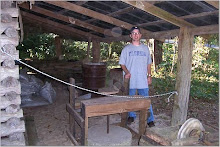In Remaking America: Public Memory, Commemoration, and Patriotism in the Twentieth Century, John Bodnar has presented an interesting look into public events. He shows events on the local, state and national level. These events included the building of the Vietnam Veterans Memorial down to local community fairs. John Bodnar’s views on the Vietnam Memorial carry many of the major themes and issues he uses throughout the book. He uses his ideas to help the reader explore the symbols behind American commemorations over the last century. Bodnar argues in his book that historical consciousness does not necessarily preserve the past, but rather historical consciousness address political matters in the present.
Bodnar uses this book to help the reader understand the concepts behind public memory through the use of vernacular cultural expressions. He explores and explains events that some people may have never heard of before or may not understand all the conflict that took place during the event. In my opinion Bodnar’s use of local, state, and national historical celebrations, shows the struggle that has helped to shape our country’s public memory. Vernacular interest refers to the native beliefs and language of a country has changed over the years. Vernacular interest usually represents diverse and marginalized groups but in recent years has come to represent more then just a small number of the population. Bodnar shows that while culture tends to reflect the ideas of the leaders at all levels of society, it is within these groups other divisive tensions occur in American society. Bodnar identifies these conflicts as being between rural and urban inhabitants, patriotic and leisure celebrations, and national, state, and local goals. These conflicts reverberate throughout the book. Bodnar also demonstrates that the changing power structure in America can be seen in the history of public commemorations.
This book reveals that the planning and implementation of commemorations mirrored the growing complexity of American life. Overall I believe this book is very good and does a wonderful job in explaining how America's struggle with vernacular and official memory has changed over the years. Bodnar has done a wonder job in supporting his arguments by showing the reader that public memory is far more complicated than one would normally think. I like to think of Bodnar’s views as being economic. By this I mean that memories are not free, they have a cost. It is how these cost have been paid for which has caused ethnic cultures to be virtually be eliminated for our nation’s memory. Bodnar has done a good job but at time his book was quite boring and dull. However, Bodnar is effective at showing the reader how public memory has been shaped by the societal elite and developed further by public officials. People interested in the social meaning of public ceremonials will want to read this book.
The Final Frontier?
17 years ago

1 comment:
It really is interesting to think of the commemoration events we have been involved with, especially as children, and the meaning behind them. I often took these events as an excuse to have a good time not thinking about their historical influence. It is impressive the amount of influence the elite wield in the cultural field. One interesting fact is how symbols originate within the vernacular culture but are co-opted by elite and often taken out of the grasp of the common man. I appreciated Bodnar’s use of many levels of culture, local, state, and national. I like your economic analogy. The cost of ethnic groups adapting to American culture often seems the adoption of that culture until it is indistinguishable from mainstream American culture. By becoming a part of America their culture loses its importance until, those farther removed like grandchildren and great-grandchildren, no longer identify with it. It is an unfortunate cycle.
Post a Comment